Yellow Collar Macaws for Sale
$2,000.00
We have Males and Females Yellow Collar Macaws for Sale from 5 to 9 months old. DNA tested, thoroughly health tested with vet certificate. They are cute and very friendly. They love to be held, stroked and will climb all over you. They have been hand-reared from a very young age, and so they are very friendly and tame towards everyone, including children. They feed on apples, bananas, and pellets mixed with seeds.
Every hand-fed baby Yellow Collar Macaws is weaned onto a high variety diet. They are weaned onto fruits and veggies, a soak and sprout mix we make here in the store, high variety seed that we also make here in the store, and naturally colored pellet. If you have questions regarding this baby Yellow Collar Macaws or any others that we have available, please give us a call! For more pictures, videos, and information.
Description
Charming, crafty, and comical, Yellow-collared macaws offer all the personality of a large macaw in a smaller, more affordable, and easier-to-care-for mini macaw package. They make great pets. They are brilliant, making training easy, and most of these birds learn to talk quite well. These parrots love attention and enjoy being part of a family. The yellow-collared macaw is a lively, engaging bird that can make an extraordinary companion for the right owner.
Temperament
The yellow-collared macaw has a reputation for being an intelligent and resourceful little parrot. It thrives on attention from its owner and will seek that attention by any means necessary. Expect a greeting when you get home and lots of love and affection, whether you want it or not.
Although some are one-person birds, most Yellow-collared macaws make extraordinary family pets. It helps when a bird is socialized young. They are generally friendly by nature. These traits are extensions from their pairing and flocking instincts, which they will gladly extend to their human flock.
Given the right amount of training, discipline, and love, these birds can become loyal and affectionate pets that form deep and long-lasting bonds with their owners. However, if this bird does not get consistent training from a young age, then it can be a territorial, nippy bird.
While Yellow-collared macaws are generally not as noisy as larger macaws, they are more than capable of being quite loud when the mood strikes. Some people even compare their call to a gull. This noise level makes them not suitable for apartment or condominium living.
Additional information
| Ages | 3 to 5 months old, 6 to 9 months old, 1 year to 2 Years old |
|---|---|
| DNA Sexed | Male, Female |

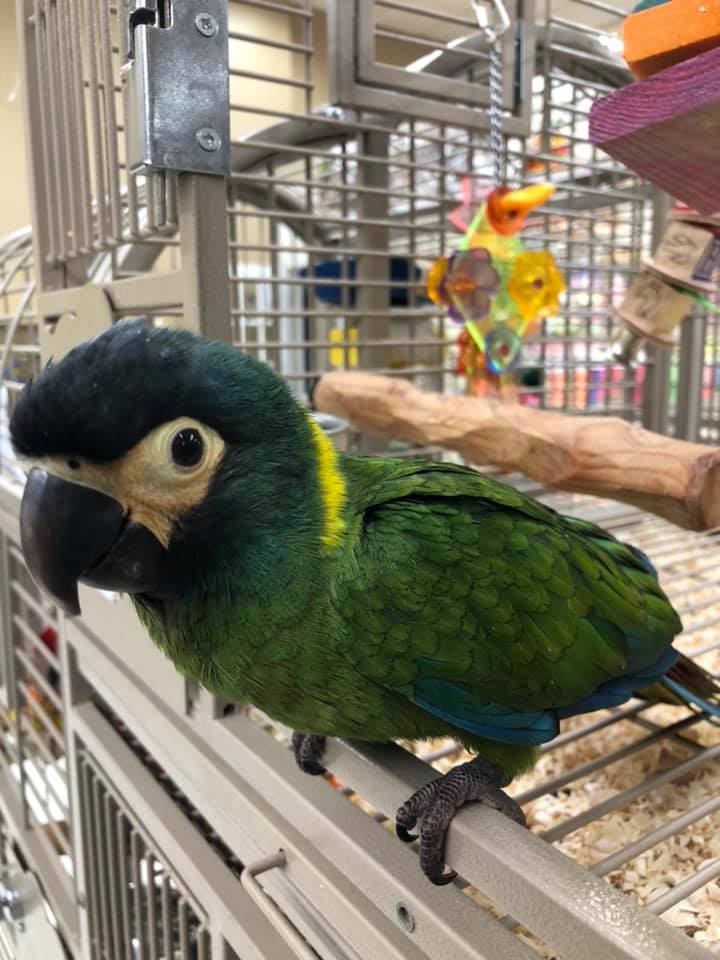
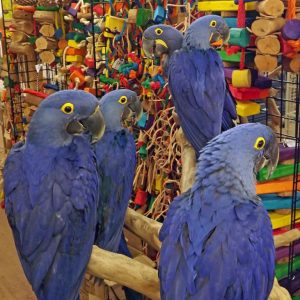
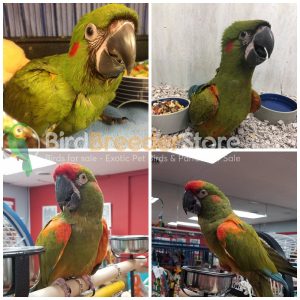
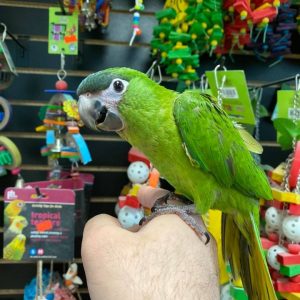
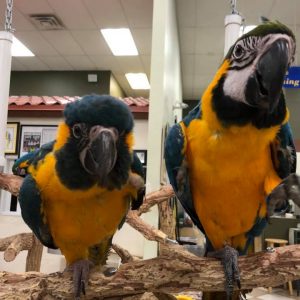
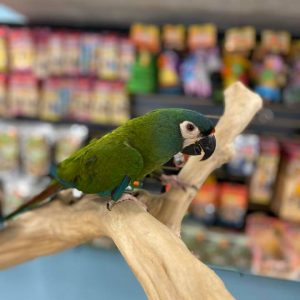

Reviews
There are no reviews yet.